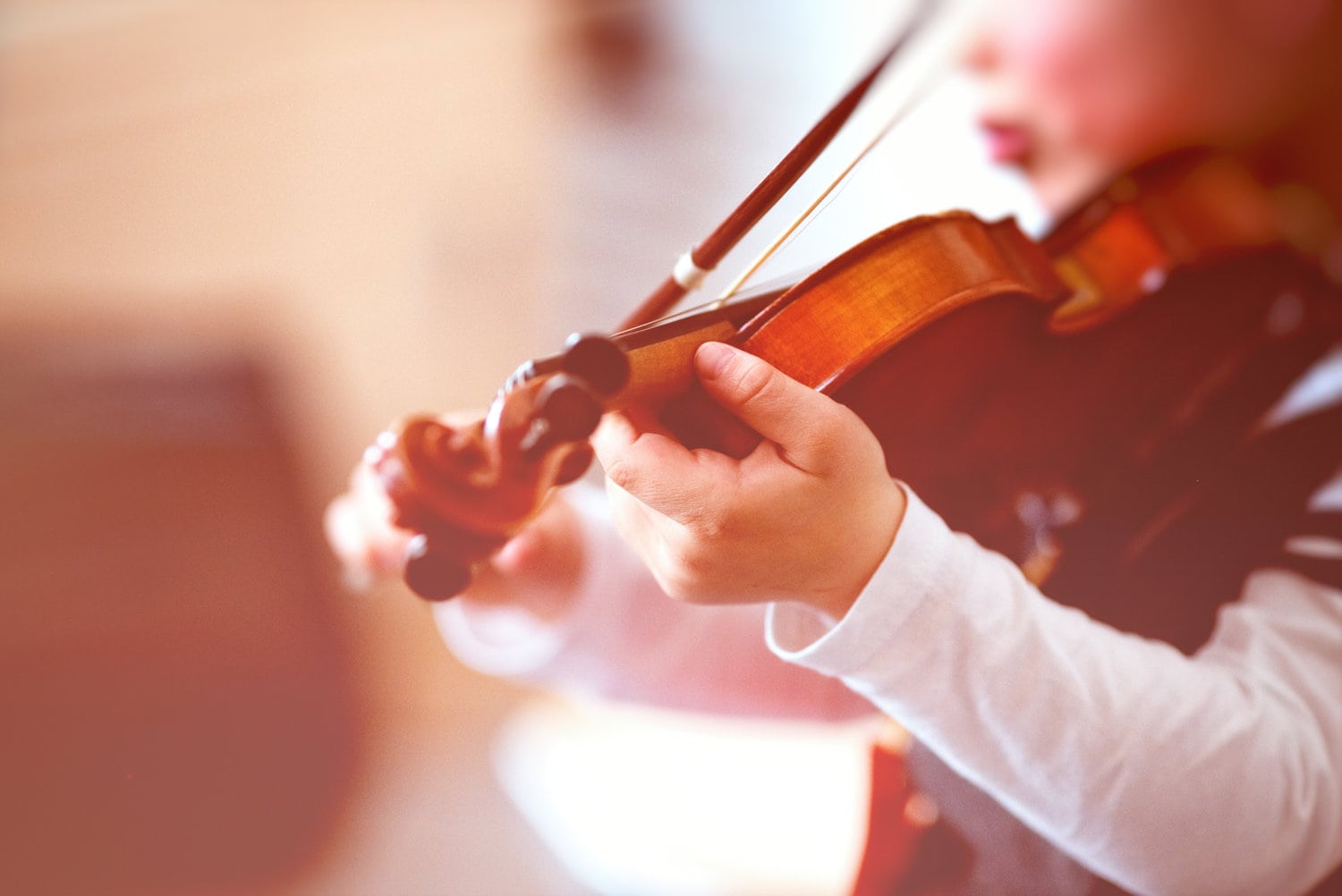Kids must be appropriately introduced to classical music since it can be potentially beneficial for their brain development. Not every kid may develop into a musical professional, but there are numerous benefits to exposing children to music early on. There have been several research programs that have proven how music can make kids relax, have a positive attitude, and improve their problem-solving capabilities. It has also been proven to improve memory.

How Classical Music Influences the Brain
A lot of brain activity occurs as kids listen to classical music. The brain processes the sound, separates the melody from the rhythm and then puts it back together so that the listener enjoys the musical experience. The brain does this in a fraction of a second. This is between the moments the listener hears the song for the first time to the time they break into a dance, or when they start nodding their heads.
Playing a musical instrument requires increased brain activity. The musician may seem like they are calmly enjoying reading the musical notes and making the required movements, but there are numerous things happening at the same time. Creating songs takes up most parts of the brain. These are the auditory, visual, and motor cortices. When a young mind is involved in such a practice, their brain function is strengthened, and this allows them to be sharper in other activities.
Playing music involves skills controlled by both hemispheres of the brain. Research has shown that it also increases the capacity and the activities that occur in the corpus callosum, the bridge between the two regions. The increased volume of the corpus callosum means that messages are relayed faster within the brain. Musicians are then able to solve problems quickly, creatively, and effectively.
Teachers involved in early childhood development are advised to link learning activities to songs. This is because music improves both language and reasoning. It helps students form a mental picture of what they are learning. Perception and exceptional intelligence are thus enhanced.
Kids who play instruments are exposed to risks and mistakes such as playing the wrong note and having the instrument out of tune. They then learn the value of putting effort in to achieve success. It also teaches them to face their fears. All of these are necessary skills in life. The kids are then better equipped to face life challenges.
The Mozart Effect: Does Classical Music Make Kids Smarter?
The Mozart Effect is a theory that was developed by Doctor Gordon Shaw in the 1990s. It suggests that listening to classical songs makes a person smarter.
Shaw started studying the brain in 1973 when he began investigating the brain’s capability in spatial reasoning. Spatial reasoning is used in playing mind games such as chess, solving arithmetic problems, science, and engineering. With the help of graduate Xiaodan Leng, Shaw created a model of the human brain. Musical notes represented brain activity. The overall sound produced was similar to the sound of classical music. This inspired Shaw to test the effect of classical music on the brain.
Shaw did his first research on three-year-olds to test the effect of classical music on the brain. He later conducted the same on college students. He reported that the IQs of college students had risen by as high as 9 points after they listened to Sonata for Two Pianos in D Major by Mozart.
Shaw’s research initiated similar projects such as the one done in Wisconsin. This research showed that preschool students who were introduced to piano lessons once a week recorded a 34% increase in spatial reasoning compared to those who didn’t have lessons. Numerous studies followed supporting these findings while others opposed it. The reaction of individuals with illnesses such as epilepsy is also being linked to classical songs. With today’s technology, researchers should be in a position to accurately find convincing results.
Shaw’s findings were not the first of their kind. There had been other researches since the 1800s that suggested the positive effects of classical music. Here are some of the benefits.
1. Reduces Blood Pressure
In a study conducted at Oxford University, a researcher played different genres of music to kids. This included classical music, pop, rap, and techno. Blood pressure was monitored during the process. The results showed that classical music was effective in lowering blood pressure while the other genres of music contributed to an increase in blood pressure. There have been theories suggesting that classical music can be used to complement treatment for kids with heart disease.
2. Increases Creativity
Artists often play classical music while doing some artwork. The music might not directly make you creative but it forms the creative mind-set required for work. Teachers have emulated this while training children who engage in creative activities.
3. Boosts Memory
As earlier explained, listening to classical music increases brain wave activity, which is directly connected to memory. Classical music can also be played in the background while kids are memorizing a speech or presentation. Playing the same music during recollection will help them remember most things.
4. Suppressing Stress Levels
Several reports have proven that the tempo of classical music is similar to the beating of the human heart. This synchrony eases anxiety. This explains why classical music plays in the background of cartoons and other children’s movies. Other reports have suggested that pregnant women who listen to classical music have a lesser chance of feeling stressed. Next time you are feeling stressed, try listening to some Bach classics.
5. Relieves Depression
Different studies have shown that classical music helps fight melancholy and depression. Teachers opt for classical music to raise the spirits of their children when teaching due to this benefit. The music causes the release of dopamine, which improves the mood of the listener.
6. Boosts Brainpower
Did you know that listening to some classical songs can supercharge your brainpower and help you ace your upcoming tests?
Research done in France showed that students who attended lectures where classical music was playing in the background scored better grades in their exams. On the other hand, students who attended classes where no music was played did not pass their exams as well. This shows that classical music not only boosts concentration but also improves memory retention and brainpower.
7. Improves Sleeping Patterns
It is well known that the fastest way to put an infant to sleep is by playing lullabies. The slow tempo of the songs is similar to that of classical music. They both allow the child to relax and eventually fall into a deep slumber. For adults too, listening to classical music before bedtime can help avoid tossing and turning in bed while trying to sleep.
A recent study claims that people with sleeping problems can improve their sleep quality by listening to classical music for 45 minutes before going to bed.

8. Improves Productivity
Classical music is used to make repetitive tasks more enjoyable. Whether in class or at home, you can play classical music around children to improve their reading culture. The tasks the kids perform are likely to be more accurate and efficiently done.
9. Raises Mood
A study conducted in 2013 proved that music could help put people in a better mood. As explained earlier, listening to classical songs increases dopamine secretion, which activates the pleasure and reward centers of the brain.
10. Relieves Pain
As proven by various researchers in London, patients who listen to classical music used less pain-relieving medicine. If your kid has a headache, play him/her some classical music instead of giving them another Tylenol?
11. Therapy for ADHD
Classical music can do wonders for ADHD patients. It can improve impulse control and enhance language development. Classical music has been tested and proven to help ADHD children focus and concentrate better. The Ludwig van Beethoven’s ‘Emperor Concerto for Piano’ is complex but beautiful music. Its details, patterns, and structure are likely to excite different portions of a child’s brain simultaneously. This ultimately helps in advancing skills in speech, language, and motor tracking.
Undoubtedly, music enhances the development of children. It gives them sustained and focused attention from adults. The benefits are rewarding and can last a lifetime. However, parents shouldn’t leave classical songs playing in the background and assume that its benefits will reach their children. They should be devoted to interacting with their kids.
Strickland, S. (2001). Music and the brain in childhood development. Review of research. Childhood Education, 78(2), 100-03.
Lewis, E. (2002). The link between listening to classical music on first graders’ ability to retain information. Clearinghouse, 1-30.
Kelstrom, J. M. (1998). The Untapped Power of music: Its role in the curriculum and its effect on academic achievement. Bulletin, 39.
Hallam, S. & Price, J. (1998). How can the use of background music improve the behavior and academic performance of children with emotional and behavioral difficulties?
British Journal of Special Education, 25(2), 88-91
Anderson, S., Henke, J., McLaughlin, M., Ripp, M., & Tuffs, P. (2000). Using background music to enhance memory and improve learning








